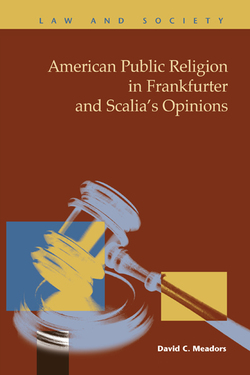American Public Religion in Frankfurter and Scalia’s Opinions

American Public Religion in Frankfurter and Scalia’s Opinions
David C. Meadors
LFB Scholarly Publishing 2014
Description
Meadors demonstrates weaknesses in the originalist methodology for interpreting the religion clauses of the First Amendment. He concludes that even though courts have an important role to play in protecting religious liberty via the First Amendment this protection needs supplementation by robust advocacy among citizens and mediating institutions in the democratic process. His thesis is that Felix Frankfurter and Antonin Scalia found different forms of American public religion constitutional in their religion clause jurisprudences. Both applied originalist methodology in their religion clause opinions, but came to different conclusions. More specifically, Frankfurter focused primarily on the views of Thomas Jefferson and James Madison whereas Antonin Scalia has looked more broadly to the views and practices of John Adams, George Washington, and John Marshall in addition to Jefferson and Madison.
About the Author
Married to Carrie K. Meadors with four children, David C. Meadors is Pastor of a Baptist church in Charlottesville, Virginia. He attended Wheaton College in Wheaton, Illinois, and the University of Mississippi School of Law, then obtained a Masters of Divinity degree from Baylor University’s George W. Truett Theological Seminary in 2000. He has served as a minister at churches in Mississippi, Texas, Georgia, and Virginia. His interests include religious liberty and the interpretation of the First Amendment’s religion clauses, biblical studies and preaching, and golf.